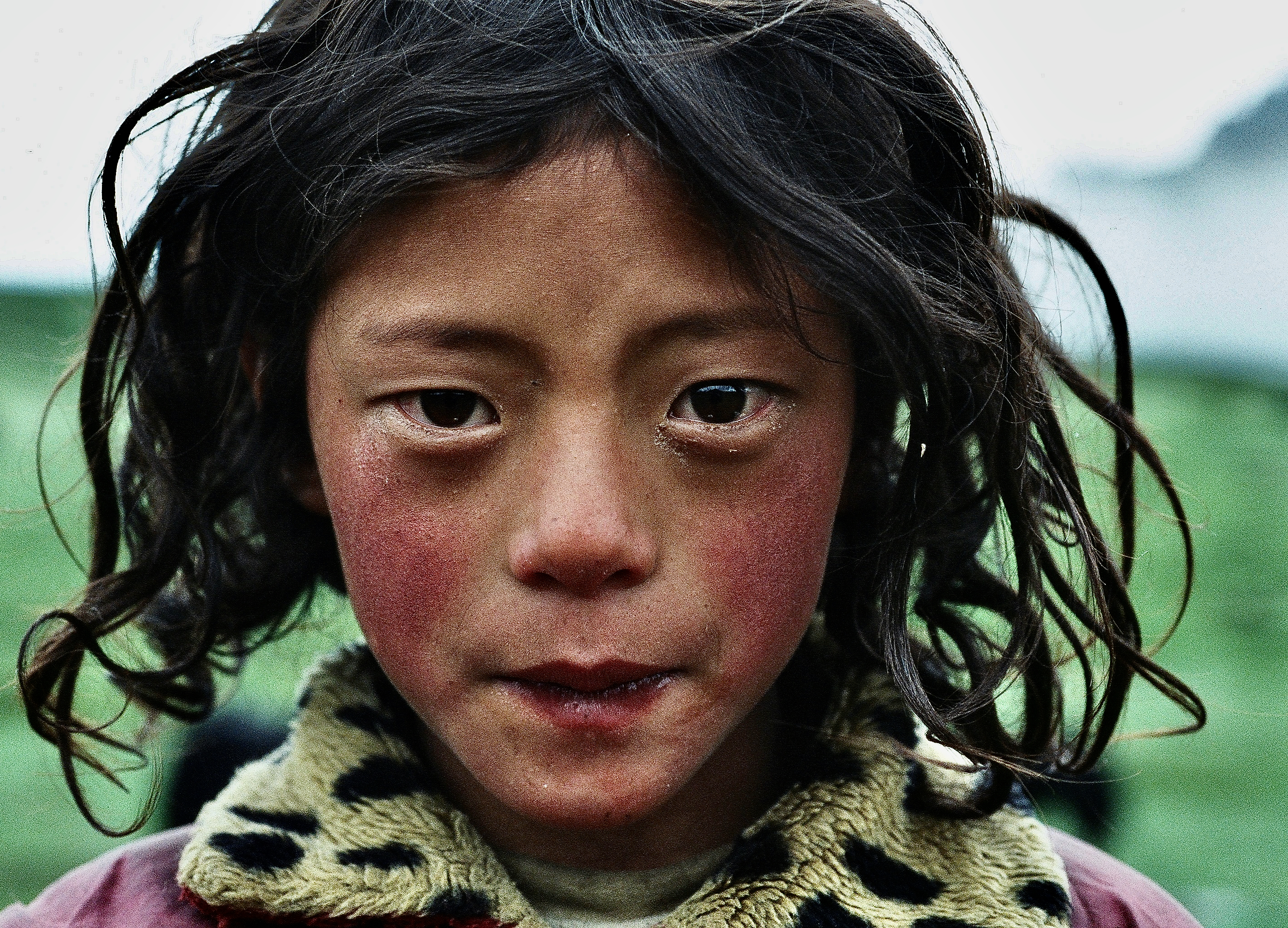‘Cheshi’ in the early morning in her family’s nomadic camp of Shin’zhu’gong at close to 5000 metres. I continually messed up her name, though I spent weeks with her and family. She patiently dealt with me until she reminded me firmly that her name was ‘Ajie’, and not Cheshi, who was her sister. Her roles in the family spanned anything to do with yak, assisting with butter making, and creating yarn out of yak wool. She was also singularly capable of doing absolutely anything in her little rubber boots that were some shade of purple. Climbing, running, riding yak, collecting fuel for the every present fire…all was done with her little rubber boots wobbling around her little ankles, sloshing about. One of the tasks she wasn’t quite allowed to undertake was the churned butter tea preparation. That sacred task was left to her equally magnificent mother, Lashi. Ajie’s early morning risings were much like mine…slow without a lot of chatter. She needed time for her blood and mind to ease into the day and detested being rushed. The region had played host to nomadic caravans carrying Himalayan herbs, tea, salt, and the coveted silk aprons (called ‘pom’den’) from further east in Lhasa. The word Pomo means girl or young woman in Tibetan.
Litang, Kham, western Sichuan

